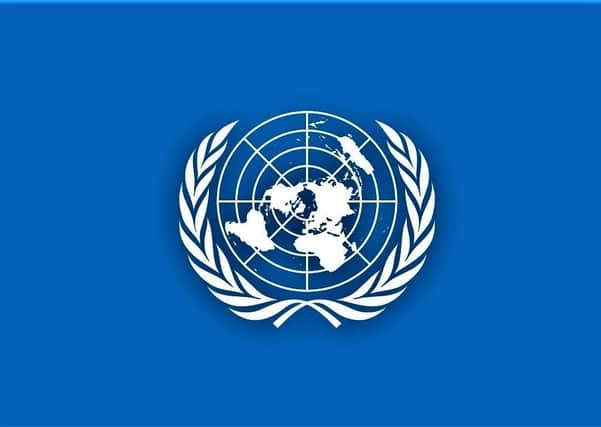United Nations now weighs into stormy debate over Troubles amnesty plan


The amnesty (called by the government a “statute of limitations”) was unveiled by NI secretary and senior Tory Brandon Lewis in July, in response to restive backbenchers who objected to the prosecution of soldiers for alleged historic murders.
It is thought that the plan would axe any investigations into all pre-1998 Troubles crimes, whether loyalist, republican, or linked to the state – and this would mean ending criminal probes and civil lawsuits, as well as inquests.
Advertisement
Hide AdAdvertisement
Hide AdWhilst the Tory Party has enough MPs to force such a measure through at Westminster, in Northern Ireland politicians and victims’ groups have universally panned the idea.
A statement from the UN Office of the High Commissioner for Human Rights last night expressed concern at what it called the “blanket impunity” plan.
Its statement said it “forecloses the pursuit of justice and accountability for the serious human rights violations committed during the troubles and thwarts victims’ rights to truth and to an effective remedy for the harm suffered, placing the UK in flagrant violation of its international obligations”.
The statement added “the proposed plan does not seem to include measures for establishing the full extent of the truth about the human rights violations perpetrated during the Troubles, and about the circumstances, reasons and responsibilities that led to them”.
Advertisement
Hide AdAdvertisement
Hide AdThe statement was in the names of two officials – Fabián Salvioli, the “special rapporteur on the promotion of truth, justice, reparation and guarantees of non-recurrence” and Morris Tidball-Binz, “special rapporteur on extrajudicial, summary or arbitrary executions”.
The UN statement put the number of people injured in the Troubles at 40,000, in addition to the more than 3,500 murders.
MORE FROM THIS REPORTER:
Advertisement
Hide AdAdvertisement
Hide AdA message from the Editor:
Thank you for reading this story on our website. While I have your attention, I also have an important request to make of you.
With the coronavirus lockdown having a major impact on many of our advertisers — and consequently the revenue we receive — we are more reliant than ever on you taking out a digital subscription.
Advertisement
Hide AdAdvertisement
Hide AdSubscribe to newsletter.co.uk and enjoy unlimited access to the best Northern Ireland and UK news and information online and on our app. With a digital subscription, you can read more than 5 articles, see fewer ads, enjoy faster load times, and get access to exclusive newsletters and content. Visit https://www.newsletter.co.uk/subscriptions now to sign up.
Our journalism costs money and we rely on advertising, print and digital revenues to help to support them. By supporting us, we are able to support you in providing trusted, fact-checked content for this website.